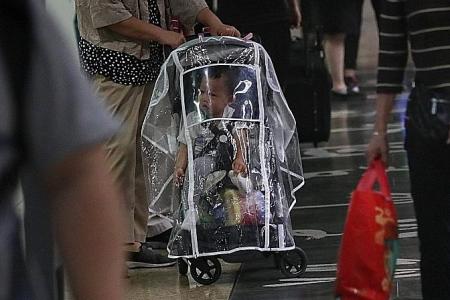Trials ongoing to approve vaccines for kids under 16
Clinical trials are under way to approve appropriate vaccines for children under 16, the last group in the country to be offered a jab.
But while experts note that children are not as likely to transmit the virus and are not a major reservoir of infections, the medical profession said that inoculating this cohort is vital for the community to achieve herd immunity.
However, the kind of vaccine they will receive remains an open question.
The Pfizer-BioNTech jab is not currently recommended for those under 16, while the Moderna vaccine cannot be approved for those under 18 until more safety and efficacy data is available, noted the Ministry of Health.
Both vaccines have begun trials in children aged 12 and above, with the Pfizer-BioNTech dose achieving a 100 per cent efficacy rate in 2,260 adolescents from 12 to 15 years old.
Similarly, Moderna has begun trials in 3,000 people aged 12 to 17, half of whom are receiving two shots four weeks apart while the other half are getting a placebo.
The results are expected around the middle of this year. Both companies have also begun trials on children under 12.
Sinovac Biotech's Covid-19 vaccine is said to be safe and able to trigger immune responses among children and adolescents, according to preliminary results from early and mid-stage trials conducted among those aged three to 17.
IMMUNE SYSTEM
Associate Professor Sylvie Alonso - who is from the National University of Singapore's (NUS) Yong Loo Lin School of Medicine and co-director of the school's infectious diseases translational research programme - said that the human immune system is very immature and not fully functional from birth until around the age of 11 to 12.
While vaccinating children might raise initial concerns, experts said that doing so will still be necessary to achieve herd immunity.
Professor Teo Yik Ying, dean of the NUS Saw Swee Hock School of Public Health, said that achieving herd immunity does not depend only on the percentage of people vaccinated in the population, "but the type of activities and movement patterns in the community".
Get The New Paper on your phone with the free TNP app. Download from the Apple App Store or Google Play Store now



